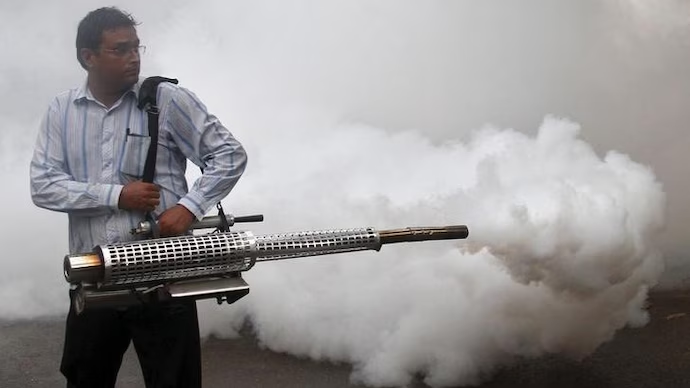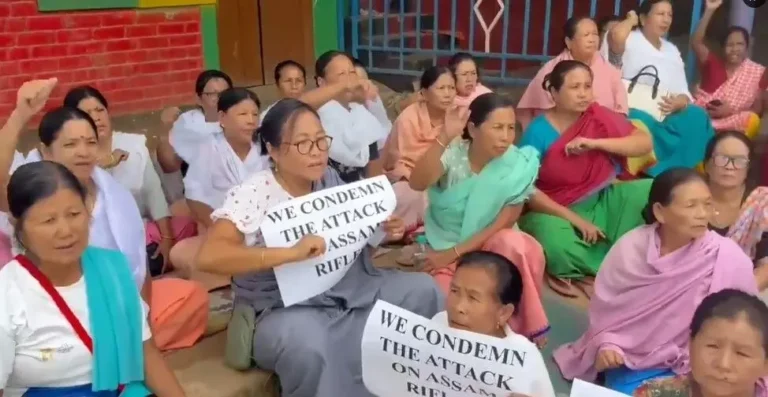Manipur Government Revises Prices of Essential Commodities in Valley Districts
In an urgent move, the Manipur government has announced a revision in the prices of 17 essential commodities across five valley districts, impacting both wholesale and retail prices. This decision comes after a prolonged blockade that has caused severe disruptions to the transport of goods, including vital supplies, in the region. The revised rates will apply to districts such as Imphal East, Imphal West, Thoubal, Bishnupur, and Kakching, and are set to remain in effect until further notice.
The price hikes, influenced by the ongoing blockade, are a direct consequence of the difficulties in transporting goods from the neighboring states. As these essential goods sit stranded at the Mao checkgate on the Manipur-Nagaland border, it is clear that the situation is far from simple.
The Price Crisis in Manipur: What Led to the Revisions?
The Ongoing Blockade and Its Impact
For the past 13 days, the Mao checkgate on the Manipur-Nagaland border has seen commercial vehicles being stranded due to an indefinite blockade. This blockade has been enforced by several organizations in protest of the assault on two Naga youths in Imphal West. With trucks carrying essential goods unable to pass through, the immediate result has been a scarcity of critical commodities like food items, medicines, and fuel, among others.
But why does this blockade, initially meant to voice dissent, affect the entire state? Because Manipur, like many northeastern states, heavily depends on supplies from neighboring regions, especially during times of heightened conflict. When such routes are cut off, the entire supply chain breaks down, and the result is predictable: shortages that lead to price hikes.
Price Hike Announcement
In response to the dire situation, the Manipur government had no choice but to revise the prices of essential items. The revised prices will impact various items in the local market, ranging from rice to pulses, sugar, edible oil, and more. These changes are necessary to accommodate the sudden shortage of goods and rising transportation costs. Additionally, the state government has instructed all businesses involved in the sale of these goods to clearly display the updated prices.
It’s important to note that these prices are not permanent. They will continue to fluctuate, subject to the availability of the goods. This temporary measure is aimed at stabilizing the local economy, but it’s unclear how long the government can maintain this balance before further revisions become necessary.
What Does This Mean for the People of Manipur?
Impact on Consumers
For everyday people in Manipur, this price revision is a wake-up call to the challenges posed by the ongoing conflict and the interruptions to supply chains. People who were already struggling with inflation and economic hardship now face even higher costs for basic goods. This is especially troubling for the middle and lower-income families who rely on affordable prices to sustain their households.
The inflationary pressure will likely force consumers to adjust their purchasing habits, possibly opting for less expensive alternatives or reducing consumption altogether. However, for essential items like rice, oil, and medicines, consumers have little choice but to pay the higher prices or risk going without.
Long-Term Consequences
While the immediate effects are visible through the rising prices, there could be long-term repercussions if the situation does not improve. A prolonged shortage of goods could lead to economic instability in the region. Businesses, especially those that depend on a steady supply of goods, could face serious losses. Furthermore, the ongoing blockade undermines consumer confidence in the market, which could affect future economic activity.
In addition, the ongoing protests that led to the blockade reveal deeper tensions within the state. The longer these tensions persist, the harder it will become for the government to ensure smooth economic operations.
The Role of the Government in Stabilizing Prices
Ensuring the Availability of Goods
In an effort to curb the rising costs, the government is considering multiple strategies. The priority remains ensuring that vehicles carrying essential goods can bypass the blockade and deliver supplies to the five affected districts. Furthermore, the state’s Consumer Affairs, Food, and Public Distribution department is working on measures to regulate market prices, prevent hoarding, and ensure that there are no artificial shortages created by opportunistic traders.
The government has also emphasized that it will continue to monitor the situation and revise prices as necessary. They’ve promised to take corrective action to stabilize the prices once the supply routes are restored to normal.
Addressing the Root Causes of the Crisis
While the immediate response focuses on price revisions, the larger issue remains the political instability and the ongoing ethnic tensions in the region. A long-term solution requires addressing the root causes of the conflict, including engaging in dialogue with the protesting groups and ensuring that the grievances of all communities are addressed in a fair manner.
The state government must work closely with civil society organizations and community leaders to foster peace and prevent further disruptions. Restoring normalcy is essential not just for economic stability but also for the overall well-being of the people of Manipur.
The Bigger Picture: A Call for Peace and Stability
Manipur is no stranger to unrest, but the recent escalation in tensions, marked by the blockade and protests, has underscored the vulnerability of the state’s economic and social systems. The price hikes are a direct result of this instability, and unless peace is restored, it is likely that the region will continue to face economic hardships.
For Manipur to thrive, it needs more than just temporary measures like price revisions. It needs a sustained effort to build trust, peace, and a stable economy. While the price revisions may ease some immediate concerns, the state government must now focus on healing the wounds caused by the blockade and ensuring that such disruptions do not become a recurring challenge.
FAQs
- Why did the Manipur government revise the prices of essential items?
- The price revision was a response to a 13-day blockade at the Mao checkgate, which caused a severe shortage of essential goods in the region.
- Which districts are affected by the price revisions?
- The revised prices will apply to Imphal East, Imphal West, Thoubal, Bishnupur, and Kakching districts in Manipur.
- Will the prices remain the same indefinitely?
- No, the prices are temporary and will be revised periodically based on the availability of goods.
- How does the blockade impact daily life in Manipur?
- The blockade has led to a shortage of essential items, resulting in price hikes that affect everyday consumers, especially lower-income families.
- What measures is the government taking to stabilize the situation?
- The government is working to restore supply routes, regulate market prices, and engage in dialogue with protesting groups to address the root causes of the unrest.




